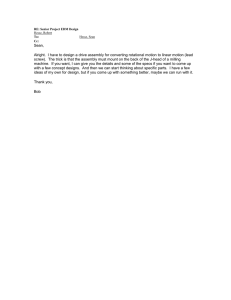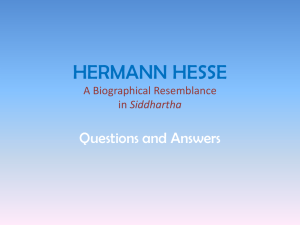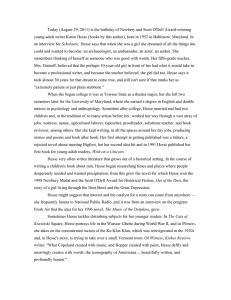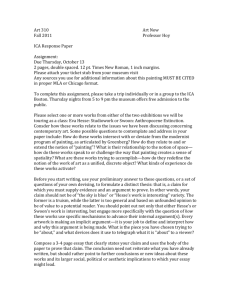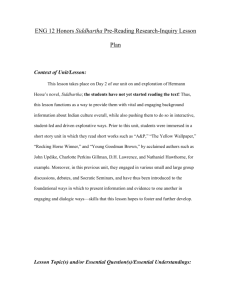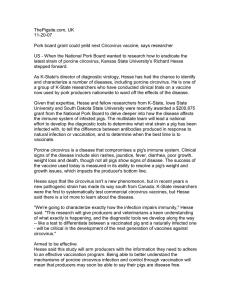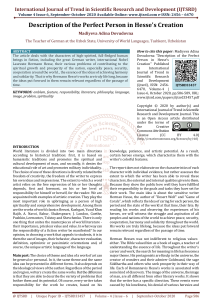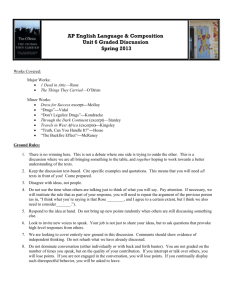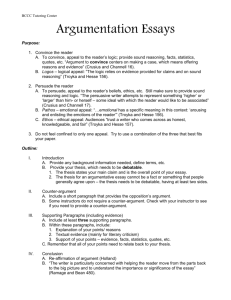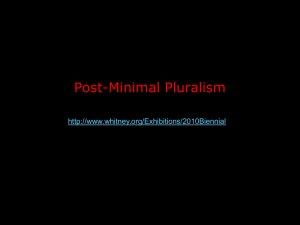Hermann Hesse
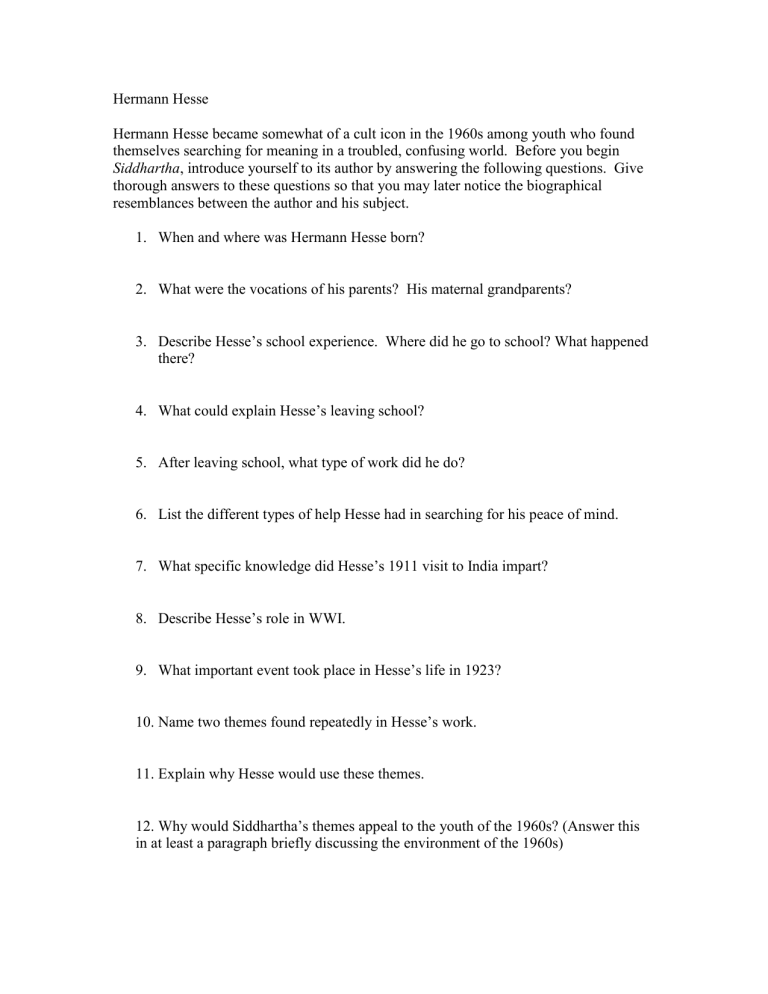
Hermann Hesse
Hermann Hesse became somewhat of a cult icon in the 1960s among youth who found themselves searching for meaning in a troubled, confusing world. Before you begin
Siddhartha , introduce yourself to its author by answering the following questions. Give thorough answers to these questions so that you may later notice the biographical resemblances between the author and his subject.
1.
When and where was Hermann Hesse born?
2.
What were the vocations of his parents? His maternal grandparents?
3.
Describe Hesse’s school experience. Where did he go to school? What happened there?
4.
What could explain Hesse’s leaving school?
5.
After leaving school, what type of work did he do?
6.
List the different types of help Hesse had in searching for his peace of mind.
7.
What specific knowledge did Hesse’s 1911 visit to India impart?
8.
Describe Hesse’s role in WWI.
9.
What important event took place in Hesse’s life in 1923?
10.
Name two themes found repeatedly in Hesse’s work.
11.
Explain why Hesse would use these themes.
12. Why would Siddhartha’s themes appeal to the youth of the 1960s? (Answer this in at least a paragraph briefly discussing the environment of the 1960s)
Read the following article for a better understanding of the relationship between
Hinduism and Buddhism.
http://www.hinduwebsite.com/hinduism/h_buddhism.asp
In your own words list the major similarities and the major differences.
Similarities (3) Differences (3)
Who is Siddhartha Gautama?
From this essay identify the following: http://www.buddhanet.net/e-learning/intro_bud.htm
3 marks of existence:
1.
2.
2.
3.
4.
3.
The Four Noble Truths:
1.
3.
4.
5.
The Eightfold Path:
1.
2.
6.
7.
8.
Define the following terms:
Samsara
Atman
Dharma
Samana
Nirvana
Vedas
Upanishaad
Brahman
Reincarnation
Om
Ascetic
Karma ablution
